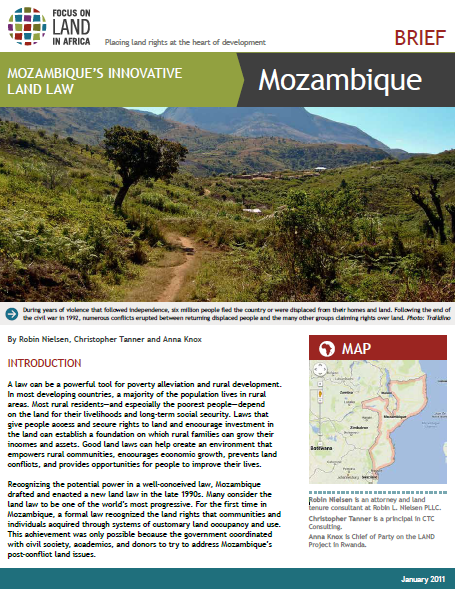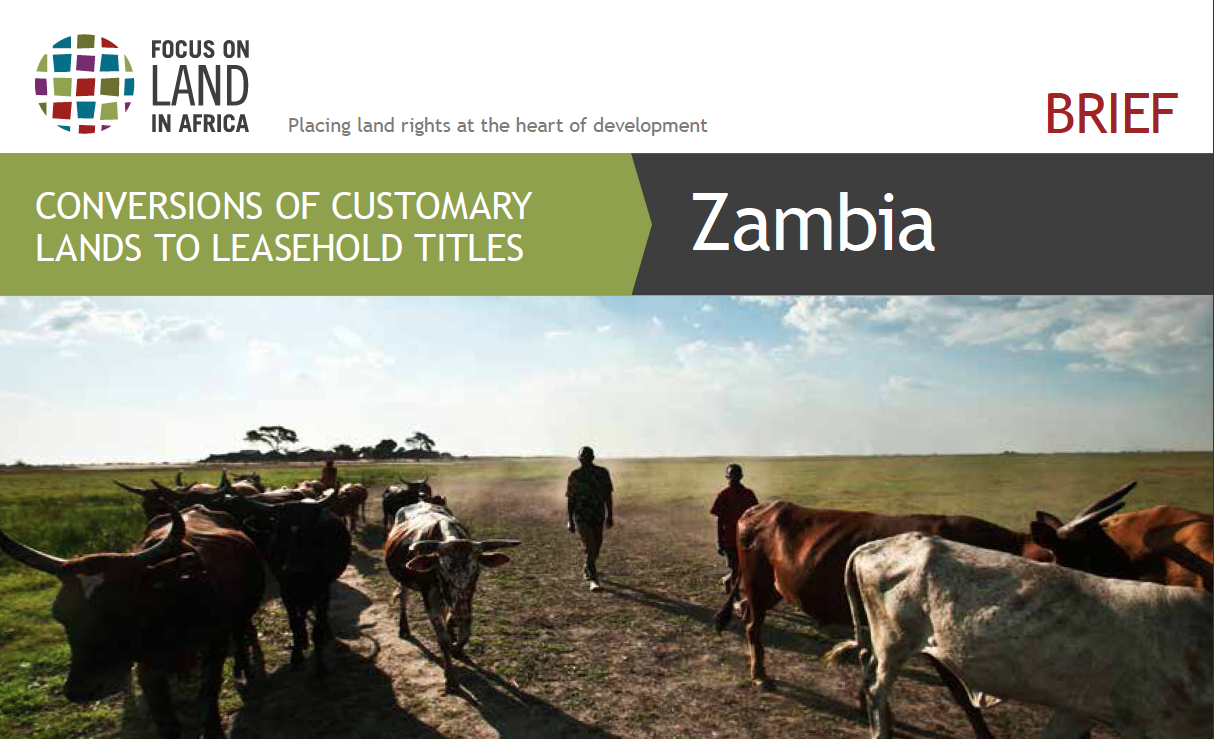Focus on Land in Africa (FOLA) is an educational resource for development practitioners and policy makers that explores how land and natural resource rights affect, and are effected by, development in Africa. Through raising awareness of these issues, FOLA aims to elevate land and natural resource rights as an urgent priority for development in Africa.
While never offering a blueprint, FOLA shares a diversity of insights, experiences, and lessons from countries across the continent, highlighting the critical role of property rights in local livelihoods and development.
It examines the impact of land and natural resource rights on agriculture, the environment, conflict, urban poverty, women's empowerment, and other development issues. It provides in-depth analysis of a variety of property rights issues, and how they are addressed in different countries and contexts.
Engage With Us
FOLA invites your questions and contributions. We welcome briefs, case studies, audio-visual material, and commentary. Please see our submission and review guidelines for more information.
Contact us at focusonlandinafrica [at] gmail.com and follow us on Twitter @AfricaLandRts
FOLA Partners
FOLA is a joint initiative of the World Resources Institute (WRI) and Landesa, with initial funding from the Bill & Melinda Gates Foundation. Content providers include land and natural resource rights experts and development practitioners working on Africa.
Members:
Resources
Displaying 1 - 5 of 10MOzambique's innovative land law
A law can be a powerful tool for poverty alleviation and rural development.
In most developing countries, a majority of the population lives in rural
areas. Most rural residents—and especially the poorest people—depend
on the land for their livelihoods and long-term social security. Laws that
give people access and secure rights to land and encourage investment in
the land can establish a foundation on which rural families can grow their
incomes and assets. Good land laws can help create an environment that
MOzambique's innovative land law
A law can be a powerful tool for poverty alleviation and rural development.
In most developing countries, a majority of the population lives in rural
areas. Most rural residents—and especially the poorest people—depend
on the land for their livelihoods and long-term social security. Laws that
give people access and secure rights to land and encourage investment in
the land can establish a foundation on which rural families can grow their
incomes and assets. Good land laws can help create an environment that
MOzambique's innovative land law
A law can be a powerful tool for poverty alleviation and rural development.
In most developing countries, a majority of the population lives in rural
areas. Most rural residents—and especially the poorest people—depend
on the land for their livelihoods and long-term social security. Laws that
give people access and secure rights to land and encourage investment in
the land can establish a foundation on which rural families can grow their
incomes and assets. Good land laws can help create an environment that
Curbs on Land Rights in Rwanda: The ‘Bundle of Rights’ in Context
Covers land law reform; the role of the full ‘bundle of land rights’, which extends well beyond ownership rights; how Rwanda’s Regional Crop Specialization Policy and Crop Intensification Programme work; the impact of land use consolidation, including on farmers’ resilience to climate change; and the government’s broader ‘target-driven’ approach to agricultural reform.
Zambia: Conversions of Customary Lands to Leasehold Titles
Zambia recognizes two types of land tenure: customary and leasehold tenure. While historically the majority of land in Zambia has been held under customary tenure, leases (also called leasehold titles) are the only legal means of holding land rights.





